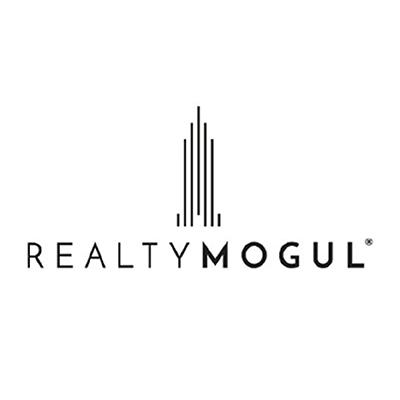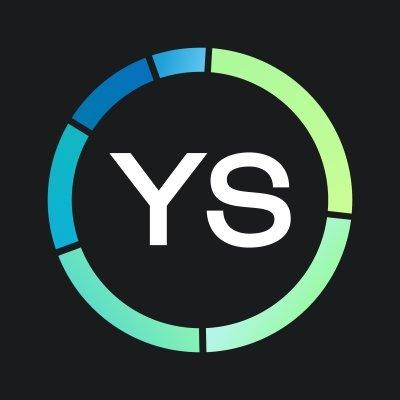Invest in individual commercial real estate properties or REITs
Invest in private market alternatives
Investments
$25,000
The minimum investment on RealtyMogul typically ranges from $25,000 to $35,000, depending on the specific investment offering.
Moderate Risk
3/5
Investing through RealtyMogul entails risks like market volatility, economic shifts, and property-specific issues. Investments are illiquid and there's potential for loss of capital.
Moderate Risk
3/5
Yieldstreet investments, focused on high-yield, specialty lending, carry inherent risks higher than traditional investments, primarily due to the potential for borrower default.
Minimum Liquidity
1/5
Investments through RealtyMogul are illiquid, as they are private real estate transactions not traded on public exchanges, and therefore cannot be easily sold or traded. Investors should have a long-term commitment and not expect to resell quickly.
Minimum Liquidity
1/5
Yieldstreet's investments are generally less liquid, meaning they cannot be quickly sold for cash. These private market alternatives often require longer holding periods.
Receive new reviews from Fintorial
High Return
15.0 %
Investors on RealtyMogul can expect an overall realized IRR of 20.8% and an overall target IRR of 15.0%. Cash-on-cash returns, IRR, and equity multiples are key metrics provided for each deal.
Moderate Return
9.6 %
The expected net annualized return (IRR) for investors on Yieldstreet is 9.6%.
Long-term Investment
3-10 years
Investments on RealtyMogul generally have a hold period ranging from 3 to 10 years, depending on the individual property's business plan and associated financing.
Short-term Investment
6+ months
Yieldstreet's investments span time horizons from as brief as 6 months to as long as 5 years.
Who can invest
United States
RealtyMogul allows both accredited and non-accredited investors to use its platform. However, only accredited investors can participate in private placement offerings, while both categories of investors may invest in RealtyMogul's managed REITs, subject to certain legal limitations.
Who can invest
United States
Yieldstreet is open to U.S. persons with a valid TIN, U.S. bank account, and U.S. mailing address. Non-accredited investors can access the Alternative Income Fund, while single asset investments require accredited investor status verification.
Moderate Volatility
3/5
Commercial real estate assets on RealtyMogul can be volatile, with values affected by economic shifts, interest rates, and market trends. This can lead to fluctuations in investment value and potential financial losses.
Moderate Volatility
3/5
Assets on Yieldstreet, being alternative investments, often show different volatility compared to traditional markets, potentially offering less correlation with broad market swings.
Regulation and audits
SEC Regulated
RealtyMogul is regulated by the SEC and must adhere to strict disclosure and filing requirements. The platform's offerings are subject to regular audits to ensure compliance with financial reporting and regulatory standards.
Regulation and audits
SEC Regulated
Yieldstreet is regulated and undergoes regular audits for compliance. Its partnership with Synapse Brokerage LLC, an SEC-registered broker-dealer and FINRA and SIPC member, ensures adherence to strict financial regulations.
Insurance
Yes
RealtyMogul's properties are insured against physical damage and loss, but insurance might not cover all risks, such as market volatility or economic downturns. Insurance is a risk mitigation tool, not a guarantee against all potential losses.
Insurance
Yes
Funds in the Yieldstreet Wallet are insured up to $250,000 by the FDIC, with deposits between $250,001 and $1 million spread across multiple FDIC-insured banks for extended coverage.
Payouts
Dividends
Investors may receive quarterly distributions, which are not guaranteed in timing or amount and depend on the performance of the investment and terms set by the managing real estate company.
Payouts
Dividends
Yieldstreet offers varied dividend or interest payment structures: fixed income investments provide monthly payments at a target yield, diversified portfolios offer quarterly target yields, and art investments yield returns upon sale, all subject to specific terms and potential annualized net returns.
Withdrawals
Investors on RealtyMogul can expect to receive their money back either through property sales or distributions during the investment's hold period, as outlined in the offering documents. The investments are illiquid, so exact timing of returns is not guaranteed.
Withdrawals
Investors on Yieldstreet receive distributions directly into their Yieldstreet Wallet and can withdraw these funds to their bank account as desired.
Extra Fees
Yes
Investors indirectly pay fees for each investment, which vary by the offering and cover administrative, legal, and management costs. Fee details are disclosed for each opportunity on the platform.
Extra Fees
Yes
Yieldstreet's fees include a range from 0% to 2.5% annual management fees, structured notes incur a 1.25% annual management fee plus a $150 annual fund expense, the Yieldstreet Alternative Income Fund charges a 1.0% annual management fee and up to a 0.5% annual administrative expense.
Taxes
Tax Form
RealtyMogul issues Schedule K-1 forms for individual deals and Form 1099s for REIT investments, made accessible via the investor's dashboard. Dividends from REITs historically have not been qualified for preferential tax rates.
Taxes
Tax Form
Yieldstreet issues either a K-1 or 1099 form for tax purposes, based on the legal structure of the investment, with details provided on the offering page and in downloadable documents when new offerings are launched.

